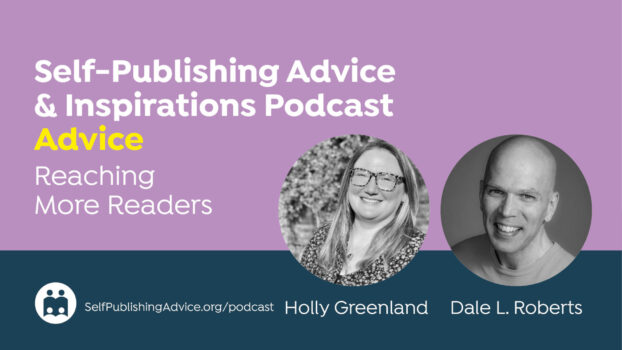
That pendant is actually an enormous watch on a chain (Photo of Debbie Young by Angela Fitch Photography)
ALLi's Publications Manager and Blog Editor Debbie Young considers the pros and cons of time management for indie writers juggling the many tasks required to be a self-publishing authorpreneur.
In back-to-school mode last week (I have a school-age daughter), I decided that this term, I would try to become more productive and efficient by managing my time better. After all, I consider myself an authorpreneur – and surely there was never a successful CEO who didn't consider the most effective use of employees' time?
The Businesslike Approach to Time Management
Before I became an indie author, I spent a large part of my working life doing consultancy work that obliged me to keep stringent timesheets, broken down into ten-minute chunks. I confess that when I first went freelance, I relished the freedom, swearing I'd never write a timesheet again – just as when I passed my driving test, I said I'd never sit another exam. (And I haven't.)
But, after a restful summer holiday, finding myself once more burning the midnight oil to accomplish all I wanted to do in a day, I realised that the person who has most to lose by not keeping better track of my working time is me.
Rationally, I knew that conscious time management techniques might bring many benefits, allowing me to:
- use my time more effectively
- cast off the feeling that I'm forever running to stand still
- be more realistic about what I charge freelance clients for my work
- take more downtime in which to recharge my creative batteries
- stop essential household chores being squeezed out or carried forward into the next day
- provide an objective assessment of how I'm actually spending my time
(a tiresome five-minute chore can seem to last longer than an hour's enjoyable writing time)
Maybe it was time to get back on the time-management wagon.
But Which Wagon?
When I quit my last consultancy day job, our timesheets were paper-based. Apps for smartphones had not been invented. So I asked the ALLi hive to recommend their favourite time management apps, expecting a long list of recommendations from our global membership to appear in our closed Facebook forum, one of the many benefits of being a paid member of ALLi.
Sure enough, a few recommendations were quickly forthcoming:
- Mary Crawford suggested www.pacemaker.press
- Claire Boston likes www.RescueTime.com (both encouraging names!)
- I knew that ALLi's efficient and productive Content Manager Jay Artale swears by www.toggl.com, which has the advantage of an appealingly familiar dashboard for anyone used to working with WordPress
However, other authors guarded against such a businesslike approach:
- “My main prompt is a sign on my wall. “Have you made art today?” If not, then I'm not doing my job properly. I tried doing time management apps but it felt too much like my old day job.” – Joanna Penn
- “I just work at whatever task I'm working at until my brain refuses to continue, then I let rest before taking on the next one.” – Alex McGilvery
- “I have a wife. She tells me whether I have any jobs to do round the house, then says, “What are you doing today?” This forces me to come up with a sensible plan, and throughout the day she will ask crucial questions such as, “You're not playing Civilization IV again, are you?” All writers should get one. They're very useful.” – Mark Hayden
- “I don't keep track. I'm a disorganized, un-businesslike artist-type writer taking care of my three-year-old granddaughter five or so days a week. I just fit in what I can when I can and try to spend more time writing than marketing.” – L K Hunsaker
- “As a pen and pencil person, I hated all of the electronic to do lists and trackers. Stumbled across the Bullet Journal and have adapted that concept…. I don't track time so much as track whether I have done key tasks. Just checking things off each day makes me focus and get it done. And it is painful to put that x down when I fail. Underneath the checkboxes, I keep a simple to do list. A quick glance and I can see whether the week was successful or not. – D Kirk Wall
- I am trying to develop a routine – currently it is an hour web work before breakfast, writing until lunchtime and (tv show) Bargain Hunt! An hour on the children's book after lunch, marketing and anything else until 4pm, then stop. Tea with friends, after they finish their ‘proper' jobs!” – Dawn Brookes
- “I find one of the things I've had to learn as a disabled writer with bipolar is that I have to make myself not get hung up on time management with my books because that can make you seriously ill.” – Dan Holloway
- “I write/edit in the morning when my brain works better. Then I tackle business tasks in the afternoon. I don't time manage. I make a weekly list of things I need to do (using a monthly/yearly operational plan as a guide) and just use that list as my push to complete everything.” – Eliza Green
Time Management versus Time Creation
When Orna Ross, ALLi Director and creativist, chimed in with an entirely different take. “I think more in terms of time creation than time management”, I was ready to throw my watch out of the window. We'll be bringing you Orna's time creation philosophy in a post here very soon.
In the meantime, I'm tentatively testing the toggl app and having fun with it – especially when I forget I've set its timer and go to lunch, or worse still, t o bed, leaving it running, only to return to my computer later only to find I've logged an hour for a five-minute task, or apparently spent all night working on my WIP.
o bed, leaving it running, only to return to my computer later only to find I've logged an hour for a five-minute task, or apparently spent all night working on my WIP.
Perhaps I need to set aside more time to consider my options…
OVER TO YOU Time management – friend or enemy to the creative writer? Source of productivity or sapper of strength? What techniques work best for you? And which have you abandoned in disgust? We'd love to hear about them!
#authors - does #timemanagement boost productivity or sap your strength? @DebbieYoungBN debates Click To TweetOTHER HELPFUL POSTS ABOUT EFFECTIVE USE OF TIME FOR INDIE AUTHORS





Thanks for the post Debbie! I think I need one of these “wife” things Mark Hayden talks about; they seem very useful!
I’ve had a horror year, so I’m reverting to project management mode – setting a schedule with work packages and milestone dates. And I’m managing the day to day with a bullet/productivity journal hybrid.
Not that it helps to decide whether washing the dishes or writing a few words is more important…
Good point, Alexandria – I’m always tempted to ignore any form of housework, but there comes a point when stepping away from the computer to tidy the house, do domestic chores, etc has a positive effect on writing and publishing productivity, because it can be inhibiting to work surrounded by mess! I spent yesterday completely away from my desk and spent a couple of hours tidying my front garden, for example – actually, tidying is a bit of an understatement, because it involved pruning trees and hedges, and a lot of physical effort – and my creative brain feels much better for doing that!
A certain Roman general wrote in his journal one day, after observing his troops: Reminder – do not confuse activity with action! Writers are particularly prone to it, almost to the point of it qualifying as a medical syndrome! If I have not achieved anything concrete in my writing I count it a bad day – and I have had quite a few of those lately! But I have also learned not to beat myself up over it. Life really is too short. Lean back and recall the last time you laughed out really loud.Everybody has one, with the possible exception of Woody Allen…
Today’s tasks on family/work/self related admin took up a whole morning. But that means I shan’t have to worry about having forgotten to do any of the things …
Often the ‘creativity’ thing doesn’t really work until later in the day – when other writers must be watching TV, judging by the fact they refer to programmes I’ve never heard of …
Time management is a mystery: some tasks, using ‘on line’ as we often have to, take much longer than you imagine they would … For writing, simply using the timer on my phone can be useful – but not using it slavishly!
Time management drives me crazy. I always seem to be busy but feel like I get things accomplished at a snail’s pace. Things work for me and then they seem to stop working (or I stop working them?). What is currently working for me is Trello. I have many boards that hold all my “stuff” (writing projects, social life, home management, family, exercise…. endless lists that just keep my head cleaned out) The board I work with is My THIS WEEK board. I have a list titled to do this week.Then I have a list for each day of the week. Trello allows you to make “cards” on your list, so each day list of mine has a card that says meditate, one that says Work on short story collection 8-10am. The list that says things to do this week has all the stuff I need to do this week (determined the Sunday before the week begins) So this week’s list has things like, Invoice L. Huber for Bio, Start next finance article due Sept 27, tidy up the front hall closet, find time to have coffee with Sharon, plus plenty more. On trello you can drag the cards around, so I drag the cards from the list onto the day I think I will do them, if I’m not sure which day I leave them on the to do list. There are labels you can add to cards saying whatever you want them to say, I have many different labels in many different colours. But the Most important two are Completed and incomplete. At the end of the day I like to see each day with it’s list of completed tasks. I only put incomplete on a task that had to be done that day, but didn’t happen. Such as I didn’t do my two hours of fiction writing. If it was just a random task, like clean that darn closet, I just move the task to another day in the week. If it ends up at Sunday , still not done then it gets and incomplete. This allows me at the end of each day to see what was accomplished, what I failed to accomplish, and what can be reorganized. On my Sunday reevaluation I can see what I accomplished the whole week, what didn’t happen, and try to figure out why. Then I redo my list for the coming week. (Often the things that go on that week list come from all the other boards I have or ideas and projects.) I also have a board for Accomplishments. When I do something to completion (like finish a short story, or finally organize the closet, I add that card to that list) Then when I am feeling crappy that I don’t seem to be moving forward I look at the list. Sometimes it makes me feel better and shows me I am getting things done, or it reminds me that the things I am completing are not things I really value, (Like having great closets, but no finished fiction). And this can help me reevaluate things yet again. Sorry for such a long reply!!! This is how I’m procrastinating on something else I should be writing. 😉 I’ve been using Trello for about 4 months, I haven’t had the urge to dump it yet. I use the free version, but I think there are even fancier things you can do with the paid version. (each card, aside from a task, can have notes on the task, web links, and even images if you want. )
Wow, thank you so much for that really long and detailed reply, Kim – sounds like you have really refined your process. I love the way you are highlighting what you’ve completed as a means to keep driving yourself forward. So much more motivating than crossing something off a list, which feels negative rather than positive, or erasing it from a whiteboard – both things I’ve done while trying other methods of time management, and although a nice clean whiteboard is a little bit pleasing, it doesn’t quite have the same power as a list of achievements!
If only words would pour out so abundantly when I write fiction. lol
Time management is definitely something that I struggle with as a writer. I often find myself spending way too much time on the business of writing instead of the writing itself. Although this might be a procrastination issue as well. In admitting this, some weeks are more productive in terms of writing than others.
I’ve hit my word count for today, so I can leave a comment without guilt. I am not an organised person, but as I’ve been self-employed for almost all of my adult life, and I have shared the parenting of my children, I’ve learned to adapt. I’ve found that creativity – for me – thrives best within limitations (I love writing haiku, for example). So while I haven’t used an app or a website, I have started using the word count goal feature on Scrivener to keep me on track. On a day when I’m not so busy with family stuff, I might get slightly ahead, so I can allow myself to fall behind on other days. On the other hand, I’m a huge fan of idleness, so any time management app would need to build an idle-o-meter into its functionality.
Millions dream of the freedom enjoyed by professional authors (okay, we know that’s not quite the reality, but it’s not so bad, right?). Let’s not ruin those dreams by being TOO efficient 😉